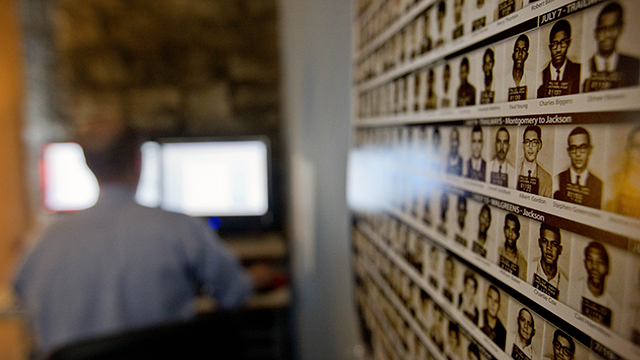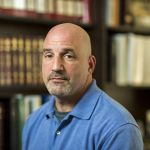This post first appeared at TalkPoverty.
In 1963, the Supreme Court declared that states are obligated to provide a lawyer to anyone accused of a crime who cannot afford one. In Gideon v. Wainwright, the Court made clear that a lawyer is essential to ensure justice is served and liberty is protected — that laypeople cannot possibly safeguard their own liberty in a complex system of law and procedure without a lawyer.
Yet, more than 50 years later, some jurisdictions deprive low-income people of the right to counsel simply because they own property or hold a job.
Imagine you are accused of a crime. Your government devotes vast resources to take you from your family and lock you away. You know you need a lawyer in order to prove your innocence. The judge demands that you sell your house to pay for one. Few scenarios are less consistent with our nation’s ideals.
Welcome to criminal justice in much of America today, where too often the test of whether a person can or cannot afford a lawyer is so extreme that even the most indigent of defendants may be deemed unworthy of counsel. I was reminded of this as I watched a news story out of Orlando, Florida, entitled Taxpayer Money Wasted on Undeserving Defendants. The title made me wonder who the reporter understood as undeserving of the essential right to counsel.
The story showed three examples of people who were allegedly “defrauding” the system by requesting lawyers. Evidence that the first man could afford a lawyer was the fact that he owned a home. Another man presumably exemplified the term “undeserving” because he owned a car. The third example was an unemployed man who requested a public defender.
A judge, held up in the story as a model jurist, interrogated the third man for daring to ask for a lawyer. The man explained that he mowed lawns “off the books” on occasion to earn money. That was all the judge needed. She accused him in open court of trying to bilk the taxpaying audience of their money and denied him counsel. The message is not subtle: anyone who owns something of value, or has any income, is undeserving of a lawyer funded by the state.
Perhaps the most troubling aspect of the story is that the call to deprive counsel to these people who were just making ends meet was led by “several local attorneys.” Despite all of the taxpayer dollars used to mindlessly police, prosecute, and incarcerate poor people, these lawyers were most concerned that people hovering just above the poverty line might obtain court-appointed lawyers. Far too many lawyers prey on people who — in their effort to prove their innocence — are forced to mortgage their homes, or borrow money they cannot afford to pay back. Far too often these lawyers do little to deliver on their promise to provide quality representation. One has to wonder if the real incentive of these “whistleblowers” in Orlando is that they hope to be able to squeeze these defendants once their request for a public defender is denied.
The story reminded me of countless anecdotes I have heard from public defenders across the country about judges who deny court appointed counsel because a defendant has a decent watch, jewelry, or nice clothes. It also reminded me of a recent news story out of Waco, Texas where the county assigned a sheriff’s detective to investigate poor defendants who request counsel. The detective visits their homes and tells them that if he determines they have been misleading in their application they could face a felony charge of tampering with government property. (The detective also said he tells people they are required to talk to him according to the application they signed, even though the application includes no such agreement.) Predictably, the threat causes many people to withdraw their application. Certainly, even many honest people prefer to avoid the increased scrutiny of the law. This is particularly true among populations that already have a distrustful relationship with law enforcement. Lauding the cost-savings of such intimidation, the county’s indigent defense coordinator called it “helpful” and said that in a single week “several people just said, ‘I don’t want to deal with this, I don’t want to have to be bothered by the detectives — just throw my application away.’”
Clarence Earl Gideon was the Florida man behind the Supreme Court case that guarantee a lawyer to every person accused of a crime who cannot afford one. Although he is frequently used as the symbol of the right to counsel, Gideon — who survived by doing odd jobs — ironically would likely be deemed undeserving in Orlando if he were accused today.
Most working people in this country live paycheck to paycheck. Once wrongly accused, a good lawyer costs thousands of dollars. It is a necessity most people simply cannot afford. The ability to get justice in this country has become a luxury reserved for the rich. This is not Gideon’s Promise.
Watch our show with Bryan Stevenson talking about the Supreme Court’s landmark decision in the case of Gideon v. Wainwright.
The views expressed in this post are the author’s alone, and presented here to offer a variety of perspectives to our readers.



